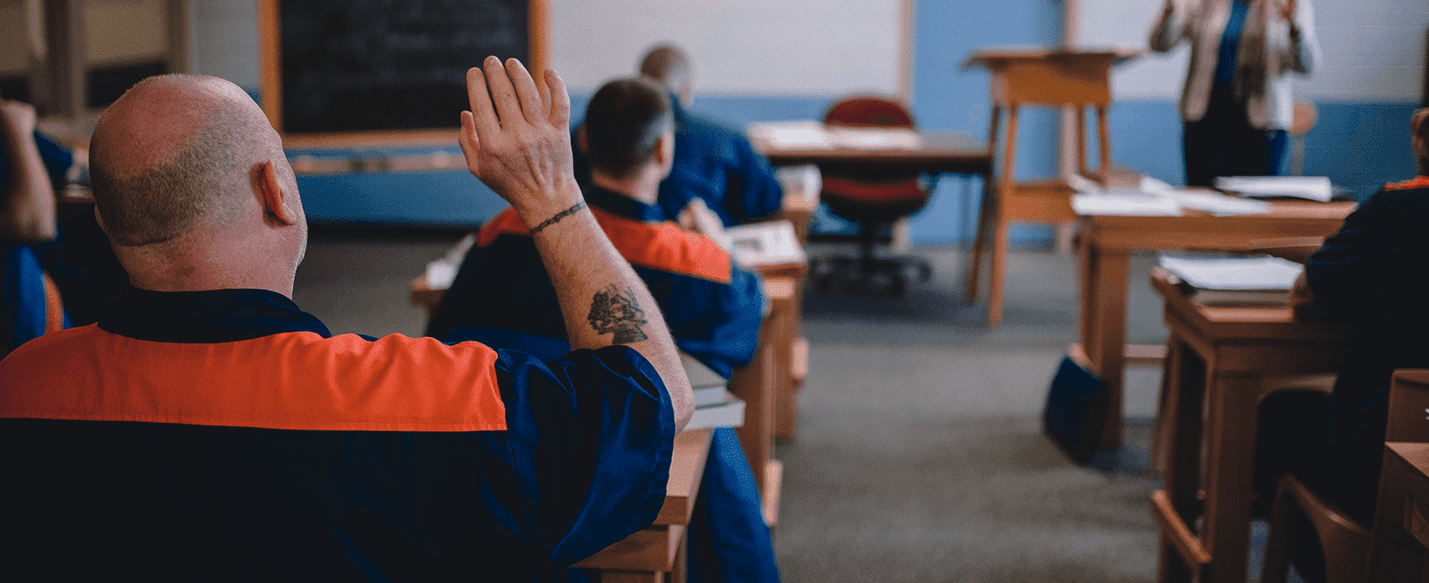
Creating a “Path of Achievement” Through Education in Corrections
Q&A with Heather Gay, Michigan Dept. of Corrections
Continued education is known to reduce incarcerated people’s odds of reoffending while improving their likelihood of finding employment in their communities. Yet, new research indicates that most states aren’t doing nearly enough to make opportunities for continued learning available to people who are or were incarcerated.

Heather Gay Michigan Dept. of Corrections
But there are examples of good work. Michigan is one of 17 states that not only provide career and technical education, associate’s degrees, and bachelor’s degrees behind bars, but also ensure that the programs offered inside correctional facilities translate to the skills employers need outside of them.
CSG Justice Center staff recently caught up with Heather Gay, state assistant administrator for prisoner education at the Michigan Department of Corrections, to learn more about why education is a priority for her agency. In her role, Gay oversees the academic and career and technical programs in 29 correctional facilities across the state.
Can you tell us why providing continued education in correctional facilities is a priority for your state? How do you ensure that the programming is of high quality?
In Michigan, we are seeing the results of our hard work to provide continued education pay off in the form of lower recidivism rates and fewer prisons. Education has been a priority from the top down in our agency for some time, and these outcomes reaffirm that focus.
The educational programming we provide must be high quality, or we don’t implement it in our prisons. We ensure this by staying engaged with our higher education partners and challenging them to ensure that the resources, classrooms, and professors inside correctional facilities are of the same caliber as those of college or universities on the outside. We also build partnerships with employers and state agencies to make sure we’re preparing people with in-demand skills.
What have been some of the successes, challenges, and lessons learned related to providing postsecondary education in correctional facilities in your state?
The successes are many. It is hard to articulate how inspiring it is to witness students experience victory in earning continued education credentials and start down a path of achievement. Our students are often the first in their families to walk across the graduation stage, and seeing them do so with their families supporting them is truly moving.
We started prioritizing higher education in 2013 after learning that 49 percent of our population enters our system with a high school diploma or GED, and at that time we faced several challenges. We knew we had to expand educational opportunities but also had to ensure that we educated staff and incarcerated people on the benefits of education, and guarantee that we didn’t inadvertently put barriers in our own way.
We’ve learned that we must continue to challenge ourselves, not get comfortable, and revisit processes to ensure we meet high standards.
As a corrections professional, why do you personally care about providing postsecondary education in correctional facilities?
I am a corrections professional, but I am also a citizen of our great state. It is important to me that people are given first and second chances in life and any way I can facilitate that, I will. I also personally care about recidivism and helping people avoid returning to incarceration.
Research shows the benefits of higher education: children of parents with college degrees are more likely to complete college; prisons with college programs have fewer infractions and violence; and higher ed promotes long-term public safety and a safer Michigan. Higher education also has significant personal benefits to individuals, including increased personal income, lower unemployment, improved quality of life, and a sense of confidence and self-esteem that spill over into all areas of one’s life.
Editor’s Note: To learn more about how states are providing—or restricting—opportunities for continued education for currently and formerly incarcerated people, read Laying the Groundwork.










